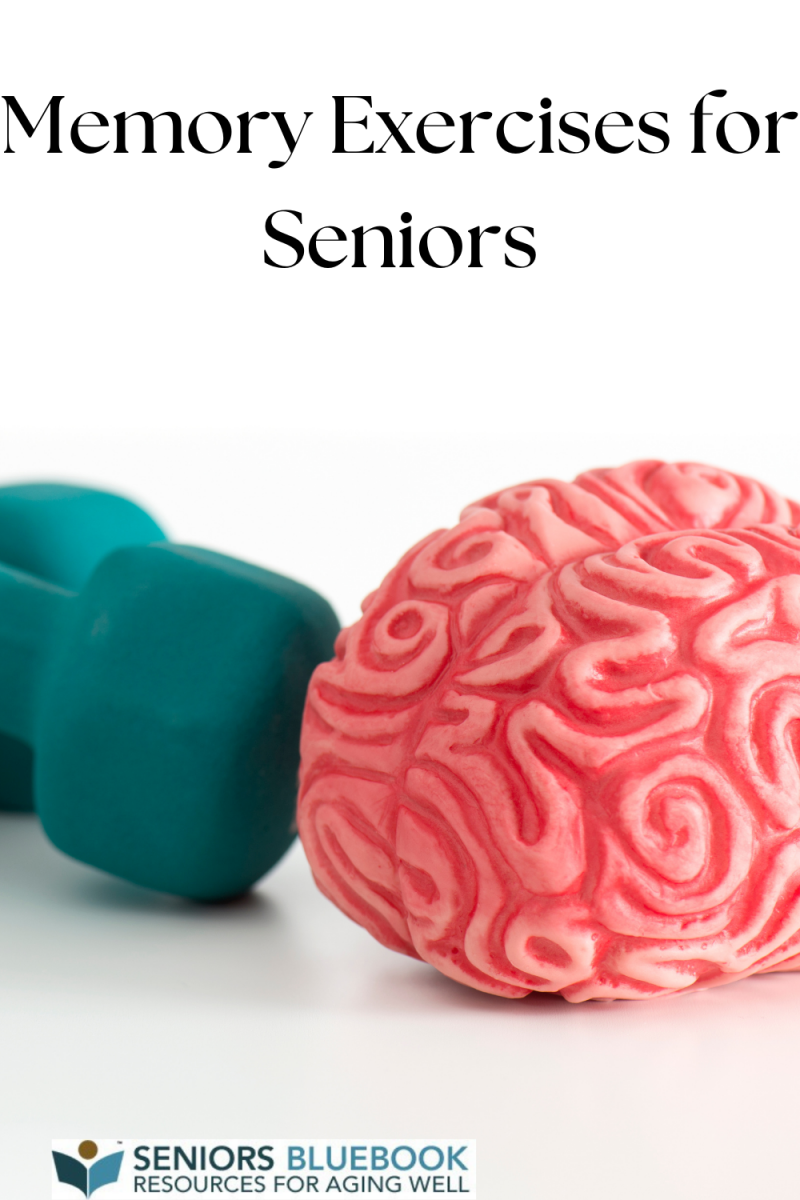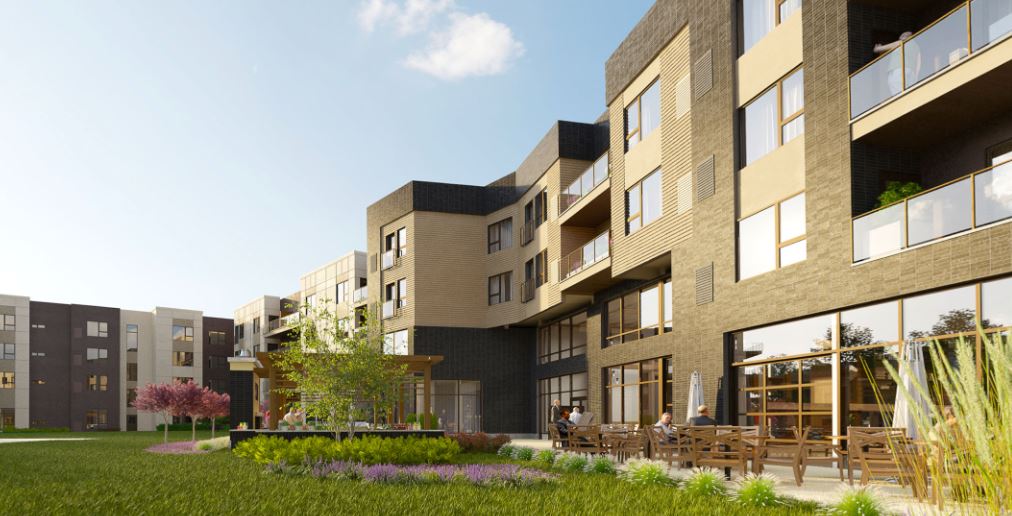Memory Exercises for Seniors
Ovation Heartwood Preserve
Jan 20, 2022
Nebraska - Eastern Region
Email US
Click to Email UsForgetfulness is a normal part of aging, according to theNational Institute on Aging, and memory problems become more common with age. Some folks have a memory issue, such as Alzheimers disease or another type of dementia, that requiresmemory support servicesdue to more significant, frequent lapses of memory. While other people have occasional trouble remembering where they put their cell phone, for example, or temporarily forget what day it is now and then.
Although, as previously stated, memory loss is a normal part of aging, its important to continue to do brain exercises for seniors, like memory games, to work your memory muscles. Why? Because just like how your body needs exercise to stay healthy, your brain needs a regular workout too.
What are Memory Games?
Memory games are fun activities that help improve your ability to retain information that you have recently learned, and to recall that information later.
Why Memory Games Are Beneficial
Researchers are still working to understand the full benefits of brain games when it comes to memory. Astudy of 221 people ages 60 to 90found that older adults who learn new skills showed measurable improvements in their memory.
Some of the main benefits of memory exercises for seniors (or brain games) include:
Brain exercises are designed to help sharpen your thinking skills. Playing a memory improvement game challenges your brain to helpprevent memory problemsand improve brain function just 15 minutes a day is all it takes to improve the function of your brain.
Thesocial interactionof playing games can also help reduce isolation, stress, and depression.
Memory games allow you to fully immerse yourself in the moment so you stay in the present.
Brain exercise games can help you to learn new skills.
Perhaps most importantly, games are so much fun that you will want to spend time playing them.
5 Types of Games That Can Help Improve Memory
Looking to improve your memory? Try the following senior brain games and exercises.
1. Crossword Puzzles
Crossword puzzles are excellent memory exercises for seniors that test your vocabulary and knowledge of art, science, and modern culture. You can choose to do crossword puzzles in a traditional format, such as the newspaper or paperback book, or opt for an online puzzle either way, focus on challenging crossword puzzles that keep your brain engaged.
2. Chess
Chess is an intellectually challenging game that requires a good short-term memory to analyze the board and to create a strategy; a good memory of your opponents past moves helps you anticipate their next move.
3. Sudoku
You play sudoku on a grid of 9 x 9 spaces, which is further divided into nine squares of 3 x 3 spaces. You place a number from 1 to 9 in each of the spaces in such a way that you do not repeat any of the numbers within any row, column or square. Successfully completing the game requires you to keep a large quantity of numbers in your head while you mentally place them on the grid.
4. Concentration
This old card game still works wonders when it comes to improving your memory. Simply lay any number of cards face down on a table; flip two up at a time to try to make a match of card suits or numbers. Make it more challenging by laying the cards out in a messier arrangement, which makes it harder to remember where the cards were.
5. Online Games for Memory
Several websites, such asLumosity, offer games that can help you improve your memory. Other sites offer online versions of traditional games, such asAARPs daily crossword puzzle, memory matching games similar to Concentration fromMemozor, andWebsudokos sudoku.
Exercises and Outdoor Activities Can Help Improve Memory for Seniors
Physical activities especially those outdoors can help boost your memory power.
Research shows that regular aerobic exercise that gets your heart pumping can actually increase the size of your hippocampus, which is the part of your brain responsible for verbal memory and learning. Exercising outdoors, even in the cold, can also improve your memory and attention.
Outdoor activities and exercises beneficial for memory include:
Walking research shows walking outdoors can improve short-term memory by as much as 20 percent
Gardening any gardening activity with low-to-moderate intensity, such as growing a vegetable garden, improves levels of memory-related proteins in the brain
Day trips going for a drive strengthens your memory by enticing you to recollect details of the last time you traveled, challenges you to chart your course, and stimulates your senses
Other Articles You May Like
The Benefits of Choosing a Memory Care Community for Your Loved One
As our loved ones age, memory-related conditions such as Alzheimers or dementia can pose significant challenges to their daily lives. In these situations, finding a memory care community becomes crucial. These specialized facilities are designed to provide comprehensive care, personalized support, and a safe environment for individuals with memory impairments. In this blog post, we will explore the benefits of choosing a memory care community like Northwoods Memory Care for your loved one, and how it can positively impact their quality of life. Expert Care and Support Memory care communities, like Northwoods Memory Care, have highly trained staff who specialize in memory-related conditions. They possess a deep understanding of the unique needs and challenges faced by individuals with memory impairments. These professionals provide round-the-clock care, ensuring that your loved ones physical, emotional, and cognitive needs are met. From assistance with daily activities to medication management, specialized care plans are tailored to each resident to promote their overall well-being. Safe and Secure Environment Memory care communities offer a dedicated and secure environment, specifically designed to minimize risks and promote independence. Facilities like Northwoods Memory Care prioritize safety measures such as secure entrances, alarmed doors, and 24/7 monitoring to prevent wandering or other safety concerns. Residents can enjoy peace of mind, knowing they are in a protected space that balances independence and safety. Enhanced Socialization and Stimulation Memory care communities recognize the importance of socialization and engagement in improving cognitive function and overall well-being. These communities provide a range of stimulating activities and social programs tailored to the needs and interests of residents. Group activities, outings, and regular social interactions with peers and staff create a sense of community and minimize feelings of isolation. Northwoods Memory Care, for example, offers a variety of enriching activities from physical exercises to crafts, music therapy, and memory-enhancing programs. Specialized Therapies and Services Memory care communities often offer specialized therapies and services designed to address the unique challenges of memory-related conditions. These may include cognitive therapy, reminiscence therapy, and sensory stimulation programs. Trained professionals work closely with residents to enhance their cognitive abilities, improve memory retention, and promote emotional well-being. Additionally, access to various healthcare services, such as physical therapy or occupational therapy, is readily available to ensure comprehensive care. Respite for Caregivers Choosing a memory care community can also provide respite for caregivers who may be struggling to balance their own lives with the demands of caregiving. Knowing that your loved one is receiving specialized care and support allows you to take a break, focus on self-care, and recharge. This can result in reduced stress levels, improved mental health, and better overall caregiving for your loved one. Opting for a memory care community, such as Northwoods Memory Care, for your loved one can offer numerous benefits. From expert care, a safe and secure environment, and enhanced socialization to specialized therapies and services, these communities prioritize the well-being and quality of life of individuals with memory-related conditions. Additionally, they provide much-needed respite for caregivers, allowing them to take care of themselves while knowing their loved one is receiving exceptional care. When considering memory care options, choose a community like Northwoods Memory Care that puts compassion and personalized support at the forefront to ensure the best possible care for your loved one.
Northwoods Memory Care Suites Providing Compassionate Memory Care
When it comes to memory care, finding a facility that offers exceptional care and a comforting environment is vital for your loved ones. Northwoods Memory Care Suites, located in Blaine, Minnesota, is a facility dedicated to providing compassionate care and creating a home-like setting for seniors struggling with memory-related conditions. In this blog post, we will delve into the story behind Northwoods Memory Care Suites, the passionate couple behind its success, and the exceptional care options they offer. A Journey of Compassion and Care Northwoods Memory Care Suites is locally owned and operated by a dedicated husband and wife team, Kyle and Sherri Lewis. With a combined 45 years of experience in the healthcare industry, their shared commitment to serving those in need has driven them to establish a memory care facility that goes above and beyond for its residents. As Executive Director, Kyle brings his expertise in management and operations, while Sherri, the dedicated Nurse, utilizes her skills to provide exceptional care. Their journeys in senior care led them to a shared passion for helping seniors with memory-related conditions. Together, they have formed a dynamic duo that residents and their families rely on for compassionate care. Creating a Close-Knit Community One of the remarkable aspects of Northwoods Memory Care Suites is the sense of community it fosters. Residents and their families become part of an extended family, where harmony and support thrive. The facility goes beyond providing top-notch medical care, ensuring that a comforting and familiar atmosphere emulates the feeling of home. Preserving Dignity and Joy Kyle and Sherris commitment to the well-being and happiness of their residents is unwavering. They understand the significance of preserving dignity, providing comfort, and creating moments of joy for those living with memory-related conditions. Through their extensive experience and genuine care, they continue to make a profound impact on the lives of the elderly population in Blaine, Minnesota. A Vision of Revolutionizing Care Northwoods Memory Care Suites was born out of a vision to revolutionize how we care for the elderly, especially those living with dementia. Unlike traditional, larger-scale care facilities, Northwoods has thoughtfully and purposefully designed their residence to emulate the warmth and familiarity of home. With a small, home-like setting, residents can feel truly at ease, knowing that Kyle and Sherri Lewis work full-time to ensure they receive the attention and care they deserve. At Northwoods Memory Care Suites, every individual is valued, and their unique life journey is honored. The facilitys mission is to provide a haven where the elderly are treasured, respected, and cherished. Compassionate caregivers understand the importance of each persons life and strive to create beautiful memories for residents. If you are seeking a facility that provides compassionate care and a welcoming environment, Northwoods Memory Care Suites is the answer. Schedule a tour today and experience the difference they can make in your familys life.
A Guide to Finding the Right Memory Care for Your Loved Ones
Memory care is a specialized type of care that focuses on individuals with memory-related conditions, such as dementia or Alzheimers disease. When it becomes challenging to provide adequate care at home, finding the right memory care facility for your loved ones can offer them the support, safety, and quality of life they need. In this guide, we will explore the key steps to help you find the best memory care option for your loved ones. What Needs Should You Assess of Your Loved One? Start by assessing your loved ones specific needs and challenges. Consider their level of cognitive impairment, any behavioral issues, medical requirements, and lifestyle preferences. Understanding these factors will help you identify memory care facilities that can provide the appropriate level of care and support. Research and Visit Multiple Facilities Do thorough research on memory care facilities in your area. Look for reputable facilities with a focus on memory care, such as Northwoods Memory Care Suites. Read online reviews, check their website for information about their approach to memory care, and look for any industry accreditations they may have. Once you have a shortlist of potential facilities, schedule visits to each one. During the visit, observe the facilitys environment, cleanliness, security measures, and staff-resident interactions. Ask questions about their staff training, safety protocols, activities program, and medical support. What Specializations Should You Consider for a Facility? Memory care facilities should have a specific focus on memory-related conditions. Ensure that the facility you choose has experience and expertise in caring for individuals with dementia or Alzheimers disease. Ask about their approach to memory care, therapy programs, and how they handle challenging behaviors. Understanding the facilitys specialization will give you confidence in their ability to meet your loved ones needs. Evaluate Staff Qualifications and Ratios The quality of care provided by a memory care facility heavily relies on the staff. Inquire about the qualifications, experience, and training of the staff members at each facility you visit. Find out the staff-to-resident ratio to ensure that your loved one will receive personalized attention and care. Additionally, ask if there is a registered nurse on-site or on-call 24/7, as having access to medical expertise is crucial in managing any health issues that may arise. What Amenities Should You Consider? Look for memory care facilities that offer a range of amenities and services to enhance the well-being of their residents. This may include nutritious meals tailored to individual dietary needs, engaging activities designed to stimulate memory and cognition, transportation services, and personalized care plans. Specific amenities like secure outdoor spaces, sensory-rich memory walks, or pet therapy programs can contribute to a nurturing and comfortable environment for your loved ones. Assess Cost and Financial Planning Memory care can be costly, so its essential to consider the financial aspects. Inquire about the facilitys pricing structure and what factors may affect the cost, such as the level of care needed or specific services required. Ask if they accept insurance, long-term care insurance, or government assistance programs like Elderly Waiver. Choosing a memory care facility is a significant decision that can greatly impact the quality of life for your loved ones. By carefully assessing their needs, researching potential facilities, considering specialization, evaluating staff qualifications, and considering amenities and costs, you can find the right memory care facility to provide the care, support, and security your loved ones deserve. Remember to be thorough in your research and visit multiple facilities to make an informed choice. Your loved ones deserve the best care possible, and finding the right memory care facility can make a meaningful difference in their lives.
Local Services By This Author
Ovation Heartwood Preserve
Assisted Living 470 Maxwell Plaza, Omaha, Nebraska, 68154A lifetime of hard work and service is worth a standing ovation and the chance to engage at your own pace. Ovation Heartwood Preserve in Omaha, Nebraska is a vibrant, secure, and active adult lifestyle village where independent living, assisted living, and memory care are inspired by life and Omaha's interwoven history and scenery.
Ovation Heartwood Preserve
Memory Care 470 Maxwell Plaza, Omaha, Nebraska, 68154A lifetime of hard work and service is worth a standing ovation and the chance to engage at your own pace. Ovation Heartwood Preserve in Omaha, Nebraska is a vibrant, secure, and active adult lifestyle village where independent living, assisted living, and memory care are inspired by life and Omahas interwoven history and scenery.
Ovation Heartwood Preserve
Independent Living 471 Maxwell Plaza, Omaha, Nebraska, 68154A lifetime of hard work and service is worth a standing ovation and the chance to engage at your own pace. Ovation Heartwood Preserve in Omaha, Nebraska is a vibrant, secure, and active adult lifestyle village where independent living, assisted living, and memory care are inspired by life and Omahas interwoven history and scenery.



